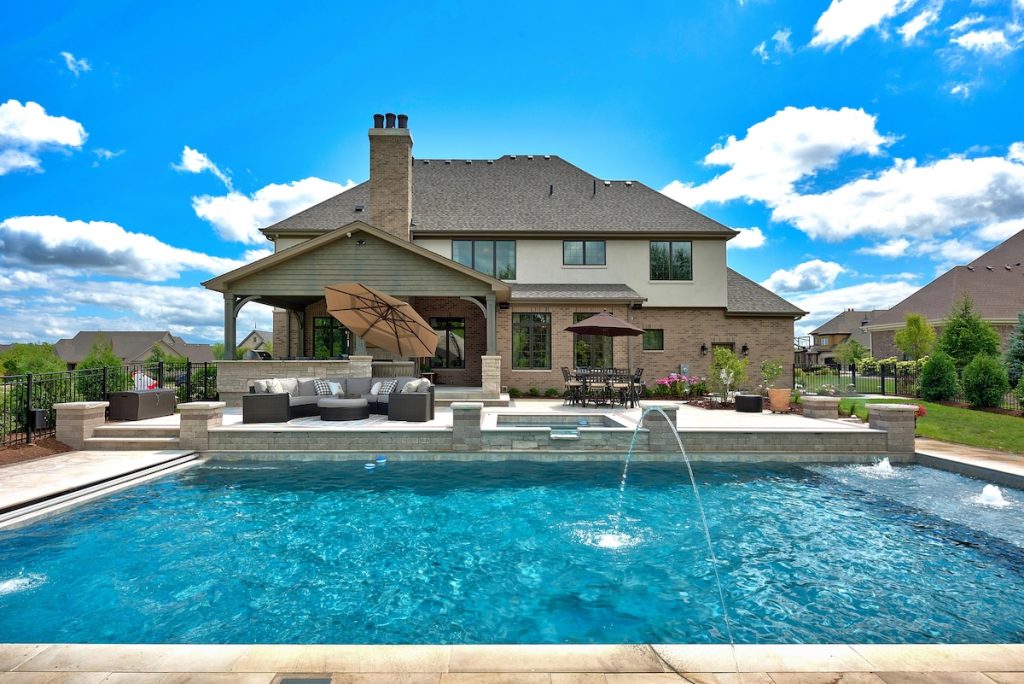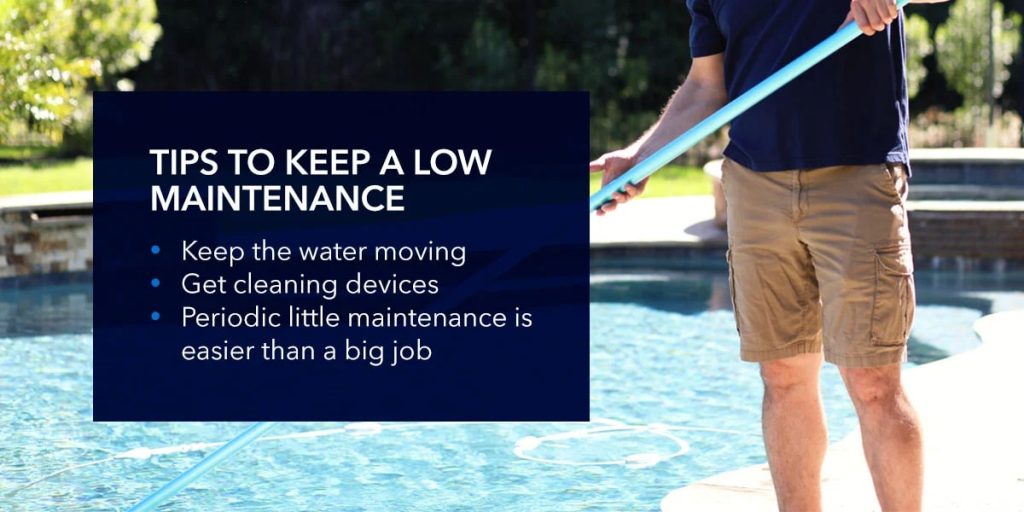

Choosing a home to purchase is a big decision for anybody. Buying a house with a pool might have been your priority when looking at real estate if part of your house dream includes spending summers with friends and family lounging around the deck.
Of course, you can always design and plan your pool if your house doesn’t have one installed. But if you can buy a home with an inground pool already built, here is a guide for what to know and some common questions you might have.
The two most common pool types are inground and above ground. Visually, it is easy to spot the difference.
Inground pools are laid into the property. They come in all shapes, from holiday-style organic curves to the swimming enthusiasts’ rectangle shape for laps and diving.
You can add all types of features to guide the pool into the style you want. Some ideas could be changing the lining to adding waterfalls, colorful lights or a fountain.
Inground swimming pools let the entire family have an outlet for fitness and recreation. Your loved ones can learn to swim and practice jumps, and pools make great gathering places for social events. You can swim whenever you want and even integrate it into your workout regime. There is nothing like jumping in and doing a few cooling-down laps after a hot jog and workout.
Inground swimming pools are a permanent feature of your home and an investment for your life ahead. They could last you a lifetime with the right maintenance and service to keep it looking and operating well.
Inground pools typically fall into one of the following categories:
Above ground, pools are built on top of the soil or partially in the ground. They are smaller than inground options and get moved or dismantled if you ever decide to leave the house.
You can quickly install the pool, as there is no digging or permanent infrastructure required. Some above ground pools are compatible with extra features, like ladders or small diving boards. Some above ground pools are available as part of kits, while others will need a professional to install them.
Pools require constant maintenance to operate as they should. Stagnant water grows bacteria and algae, and water can evaporate if left unattended. If you are considering having a pool as part of your new home, here is a list of some of the services that will soon be part of your life routine:
Be prepared to replace the tools you use for your pool, such as the lids to the filters or pumps, brushes, nets and covers, regularly and as needed.

Here are a couple of tips for reducing regular maintenance for your pool so you can spend more time swimming and less time with upkeep:
If keeping up with your inground pool’s constant maintenance seems like a lot of work, consider hiring a swimming pool maintenance professional to take care of it. Professional maintenance includes everything from weekly cleaning to repairs and maintenance. Trained professionals also have all the right knowledge, tools and products to get the job done quickly, safely and efficiently.
Before considering a house with a pool in the backyard, there are a few other questions to consider.
How long a pool lasts depends on several factors, such as what material it’s lined with, original installation quality, how the previous owners cared for it and environmental conditions. Ask the previous owners what their maintenance routines was to get a better idea of how well the pool was cared for.
If you are uncertain, consider chatting with a professional and scheduling a consultation to get the pool inspected from top to bottom. A professional can determine the pool’s overall condition, including any signs of damage or poor maintenance. They can also provide an estimated time frame for how long your pool may last with proper maintenance and upkeep.
Contact your insurance to assess if your home with a pool is part of your home insurance. Each town in the United States has its own definition of what constitutes a “home pool.” If your insurance does cover it, check the figures. Depending on your region’s weather and other factors, you might want to increase your coverage amount. Ideally, your insurance should cover incidents like the pool getting damaged during a storm or natural disaster.
Insurance companies may require certain factors before they agree to cover the pool, such as:
Make sure you ask guests if they know how to swim. Another great idea is for you and other family or loved ones living in your home to learn basic emergency water rescue skills for peace of mind.
If you’re buying a home with a pool, Lotus Pools is ready to handle all your inground pool maintenance needs. From weekly care to seasonal. Contact us for a consultation on your new pool, and learn how we can support you in maintaining it.